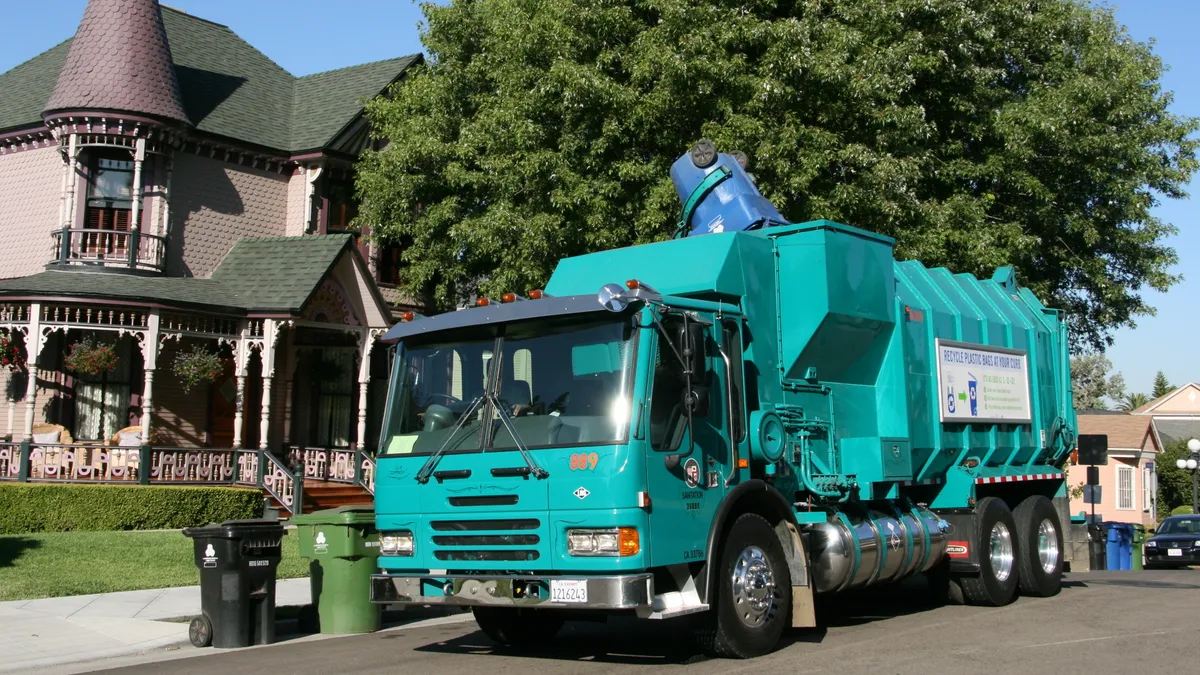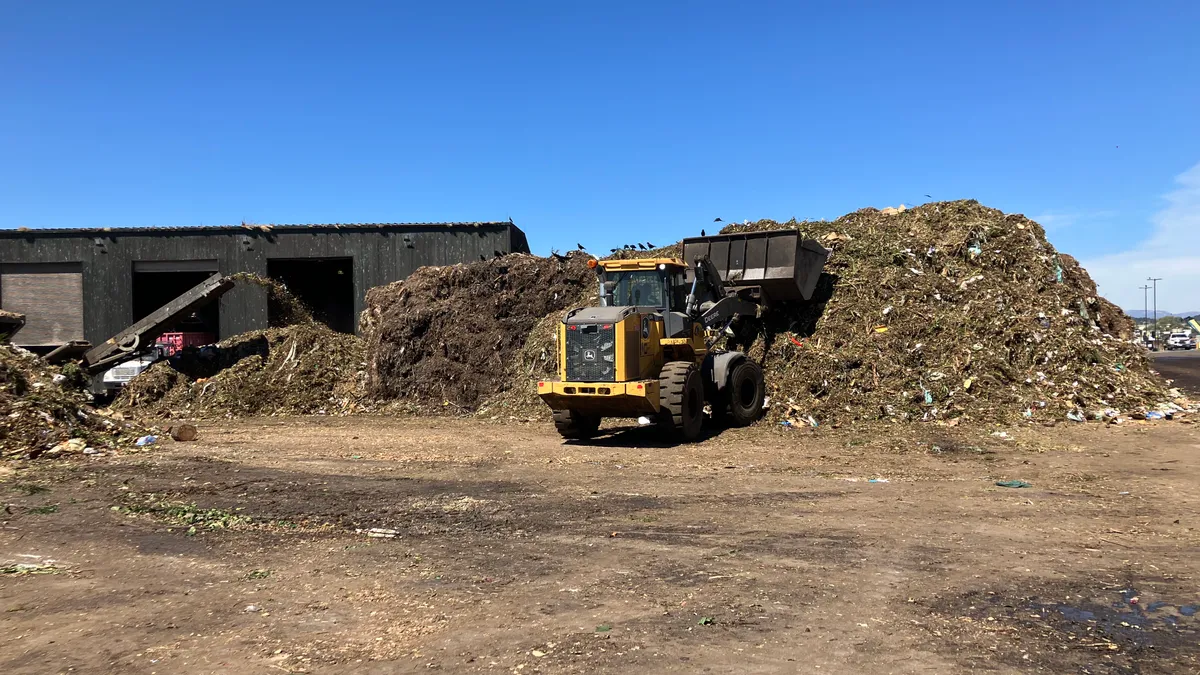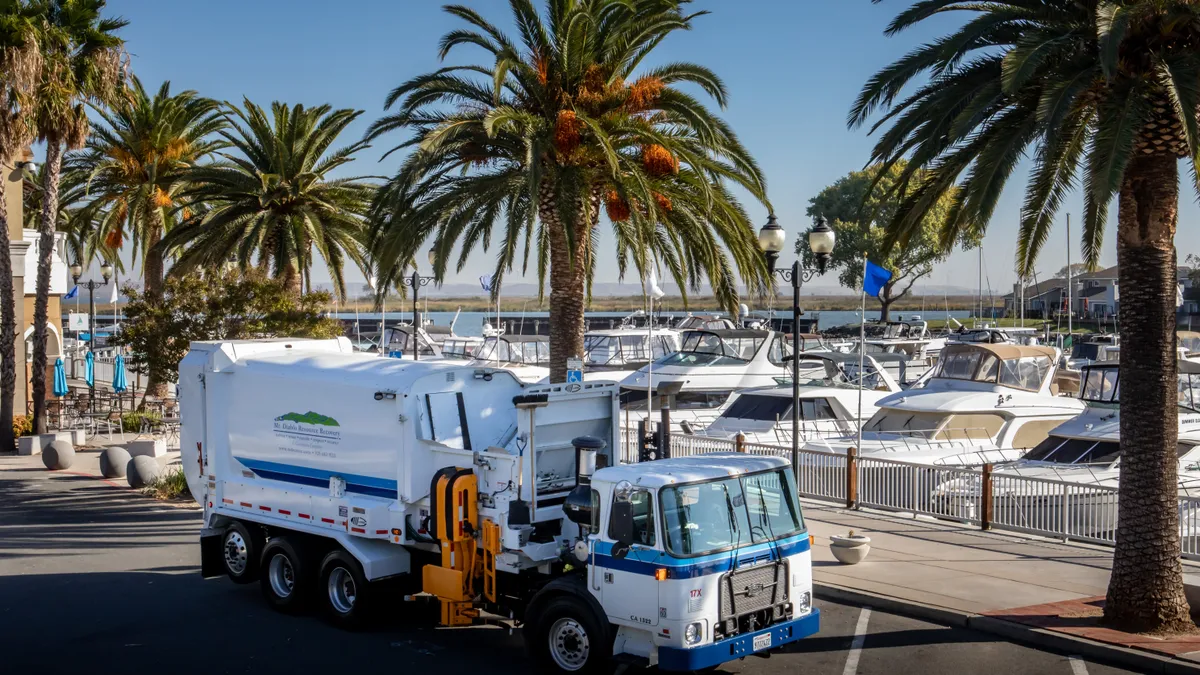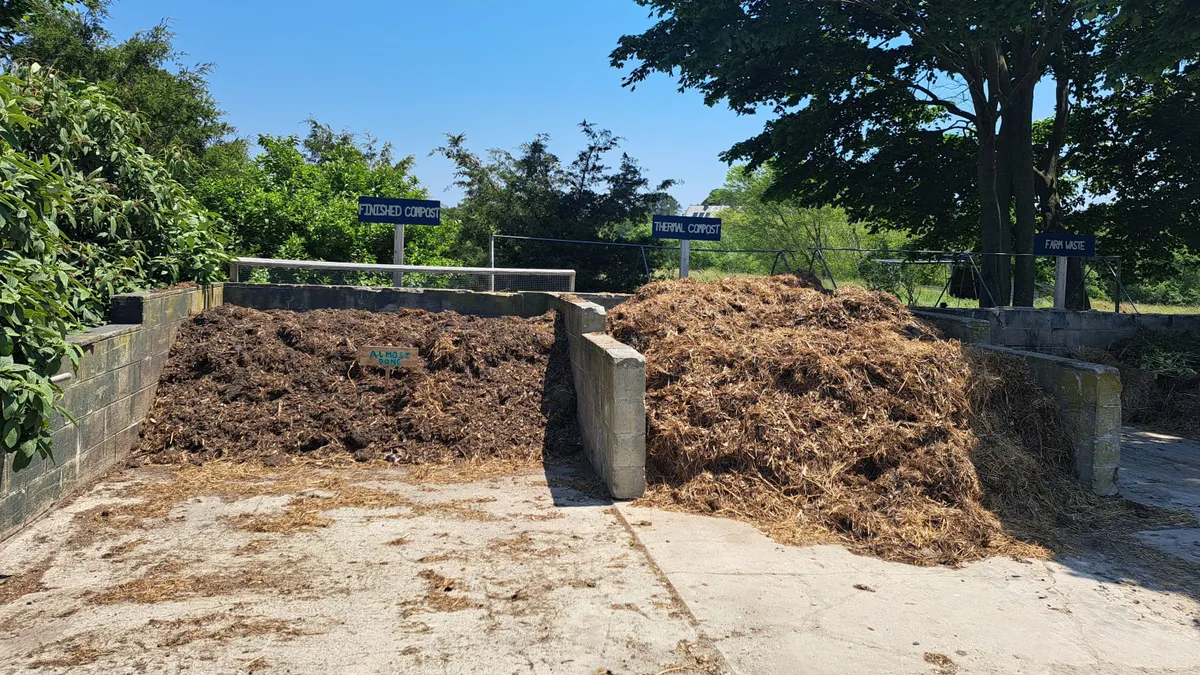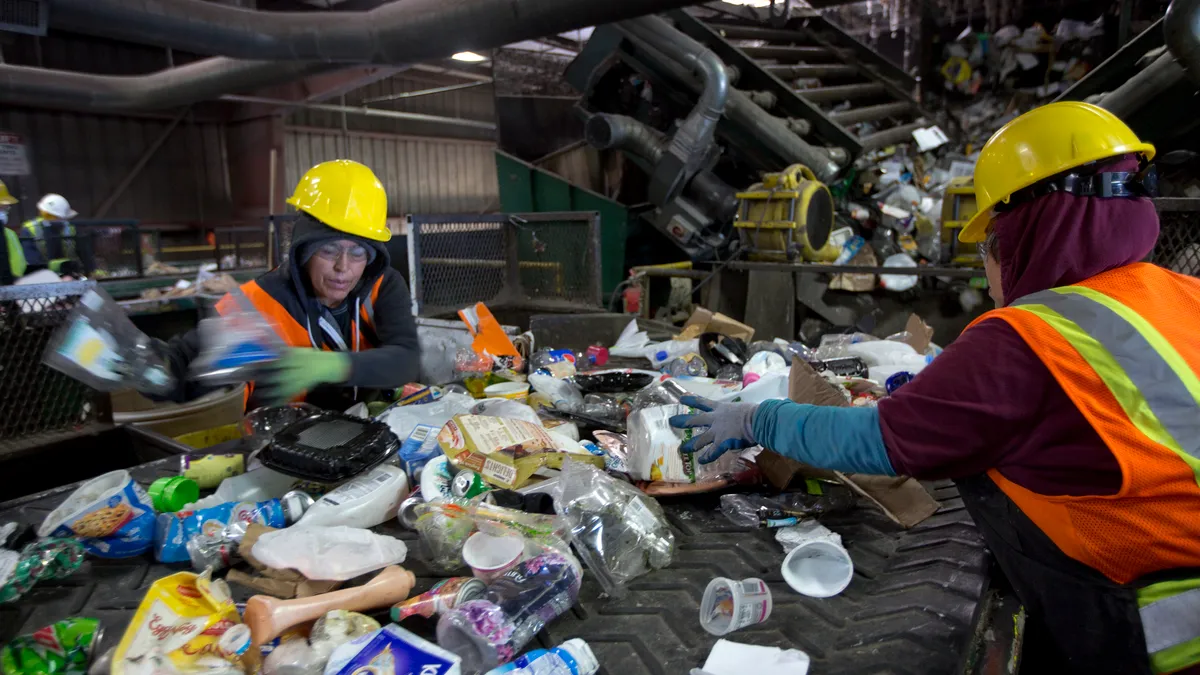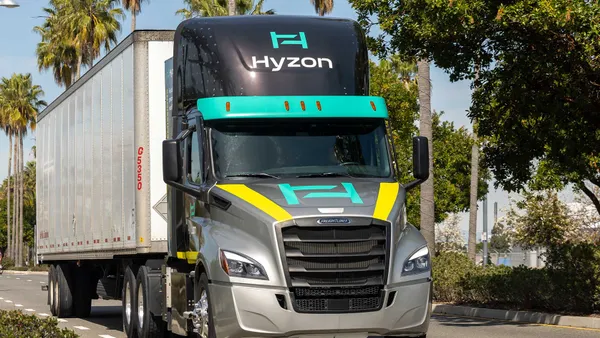The Los Angeles Bureau of Sanitation (LASAN) committed last week to transitioning to a zero-emissions fleet by 2035, a major goal for the country's second-biggest city. Director Enrique Zaldivar made the announcement during a panel discussion and said the county had an opportunity to be "an enabler and an accelerator."
The commitment makes Los Angeles the first major city to pledge a full transition of its refuse fleet to 100% electric, with all collection truck procurement set to be fully electric within the next two years. LASAN's current fleet service life has a range of seven to 10 years and the first round of all-electric procurement would target up to 10% of the fleet, the department said. The city's website indicates LASAN currently has more than 750 vehicles in total.
Elena Stern, a spokesperson for LASAN, said no decisions have been made yet about purchasing and the city invites "all interested truck manufacturers" to reach out. LASAN will be establishing technology development and acceleration partnerships soon. "Consensus is well established that electrification...is the next generation of power train for solid waste fleets," she said. "It's important that [LASAN and the truck manufacturers] be in sync on a faster rate of adoption and implementation."
The Los Angeles County Electric Truck & Bus Coalition has been pressuring officials to shift from diesel trucks to electric alternatives. In August 2019, members of the coalition, including Earthjustice and the Sierra Club, sent a letter to Zaldivar calling on LASAN "to advance robust clean air and climate solutions" in the city.
"Committing to and pursuing a zero-emission refuse truck fleet... sends a strong signal to everyone in and around Los Angeles that the Bureau of Sanitation cares about the well-being of our people, the air and the planet," the partner organizations wrote.
There are other benefits of such a fleet, including that electric trucks are considered quieter than their diesel counterparts, they noted.
Several truck manufacturers — including Mack, BYD, Mercedes-Daimler, and Peterbilt, among others — have already begun offering electric refuse collection models, an indicator of growing market interest.
That growth is coming as cities increasingly establish bold climate and environmental goals. Los Angeles has long been among the most polluted cities in the country, but officials in the wider county are aiming to decrease both air pollution and greenhouse gas emissions by 25% in the next eight years. Transitioning to electric vehicles is seen as an important driver to meeting that commitment, along with the city's plans to host the Summer Olympics in 2028.
Los Angeles previously set new emissions requirements for hundreds of trucks in the RecycLA commercial waste franchise program. And Mayor Eric Garcetti has also called for a "Green New Deal for Los Angeles," one that would see the city aiming to be carbon-neutral by 2030 and reaffirming plans to hit a 90% waste diversion rate by 2025.
Stern, of LASAN, confirmed the truck electrification is "definitely connected" to Garcetti's plans for zeroing out emissions and achieving a Green New Deal-style climate effort. Under the plan, all medium and light duty waste and recycling vehicles were set to be zero emissions by 2028. LASAN's new announcement extends to heavy duty vehicles, which must now meet the same standards in the subsequent seven years.
It remains to be seen how many other cities will similarly seek to pursue fleet electrification. Many hurdles remain, including placement of charging stations, range, grid resilience and navigating both weather and hilly terrain in some areas. The trucks can also be costly, sometimes two to three times more than a diesel equivalent.
Belinda Mager, spokesperson for New York's Department of Sanitation (DSNY), told Waste Dive the city "operates one of the cleanest heavy-duty diesel fleets in the country." New York is aiming for 2,000 electric vehicles in its citywide fleet across all agencies by 2025, and an 80% reduction in greenhouse gas emissions by 2035, but is not ready to make any similar commitments for its sanitation fleet.
DSNY is receiving the country's first full-sized fully electric LR refuse truck from Mack and will be testing it out in the city this spring, Mager said. She noted New York faces challenges Los Angeles does not — the former's refuse trucks are also its snow plows, and recharging time poses an issue during potential storms.
"We also serve many more residents and need to move much more material," Mager said. "That said, we are always looking for ways to continue to green the fleet and are excited to test the new electric collection truck."
Seattle is farther along in terms of testing electric collection vehicles, but had a similar response. Hans Van Dusen, solid waste contracts manager for Seattle, told Waste Dive the city is not currently considering plans on the same scale as Los Angeles.
"We do not have a specific electrification commitment or target date for our contracted solid waste fleet," he said. "We have been partnering with our collection contractors to expand electrification, along with plans in other areas of municipal fleet. "
Meanwhile, some cities that pursued electric collection vehicles have run into hiccups. Chicago proudly touted its $1.3 million electric garbage truck as the first in the nation in 2013, but sued Motiv Power Systems Inc. in 2019 alleging the costly vehicle had been faulty and frequently out of commission. Motiv settled with Chicago the same year, and has since seemingly pulled out of the market. That pullout affected LASAN as well, which planned to work with the company, but the city told Waste Dive at the time it planned to push forward and procure eight Class 6 refuse collection vehicles despite the setback.
The broader industry is also still in the early stages of embracing electrification, but some major players are engaged. Along with DSNY, Republic Services will be piloting Mack's electric LR refuse truck this year.


